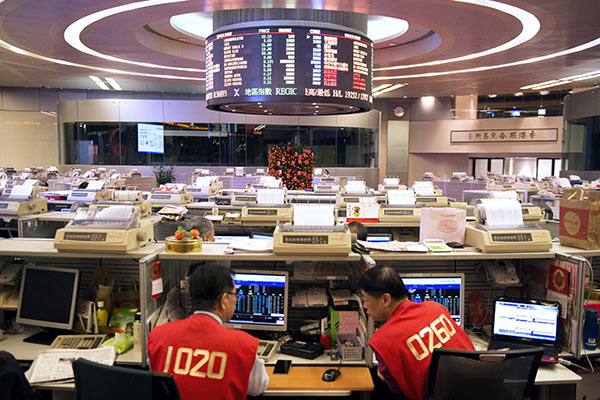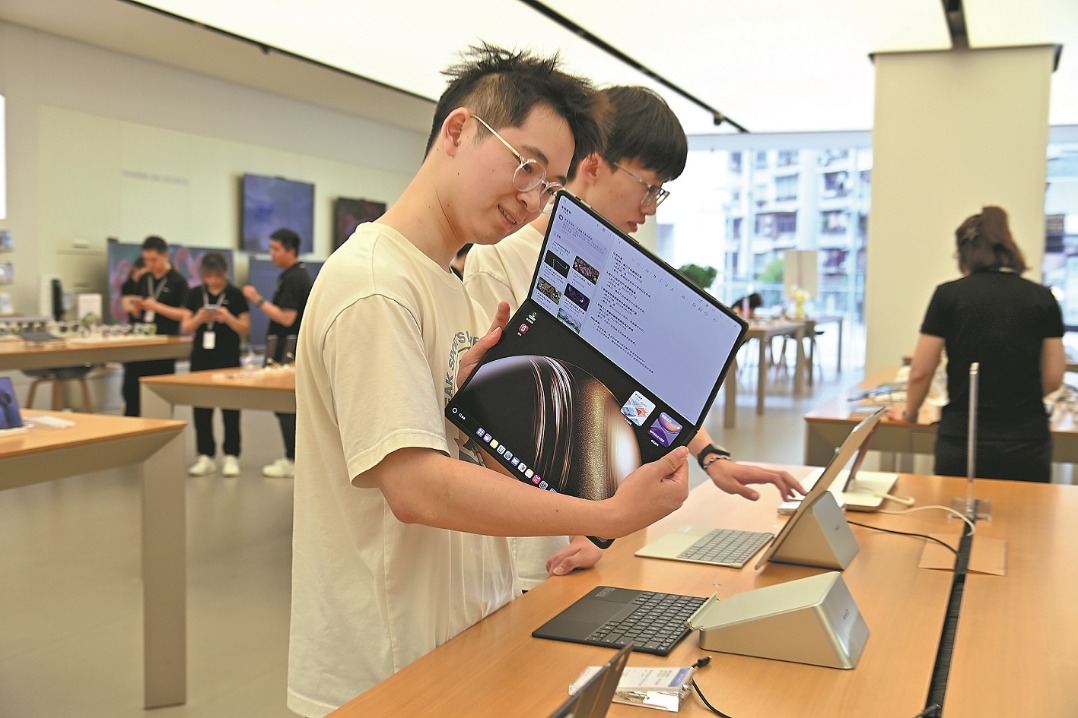Capital market prepares for further opening-up, more inflows


Further opening-up will be a major theme for the Chinese capital market this year, according to industry insiders.
China's A-share market is scheduled to be included in the MSCI emerging markets index in June. As estimated by China International Capital Corporation Limited, it is expected to bring in a capital inflow valued between $15 billion and $20 billion this year.
The regulators have reinforced their commitment to opening up the Chinese capital market to foreign investors by launching a number of programs associated with overseas markets over the past few years.
For instance, the mainland launched the Shanghai-Hong Kong Stock Connect in November 2014 and Shenzhen-Hong Kong Stock Connect at the end of 2016. The Shanghai-London Stock Connect, which was initiated in late 2015, is expected to take effect this year.
In addition, authorities approved bond trading link program between the Chinese mainland and Hong Kong in mid-May last year, allowing investors from both sides to trade bonds on each other's interbank markets. "Northbound" trade, which allows foreign investors to buy bonds issued on the Chinese markets, started in July.
On March 2, bourses in Shanghai and Shenzhen announced start of bond issuance businesses targeting Belt and Road Initiative projects. Jiang Chao, a senior researcher at Haitong Securities, said it is necessary to expand financing channels to meet the huge funding demand for such projects.
All these are signs of the integration between the Chinese market and the global market, a trend that is certain to be carried into the future, said David Chin, head of UBS' investment banking in the Asia-Pacific region.
During the ongoing two sessions, Zhou Xiaochuan, governor of the People's Bank of China, said at a news conference on March 9 that there could be a higher level of opening-up in terms of market access since the country has entered a new phase of development.
"We can see that China has stepped further steadily in terms of greater convertibility of the Chinese currency. It can be expected that such opening-up will be expanded in the following years," he said.
In November, the Chinese government relaxed restrictions on foreign ownership in jointly owned financial institutions. With this, foreign businesses are allowed to own up to 51 percent equity in such organizations. The limit will be totally abolished after the policy is in effect for three years.
Apart from the relaxed grip on foreign financial institutions in China, opening-up also means Chinese financial organizations will be allowed to reach overseas markets, said Zhou.
"Quite a large number of Chinese financial institutions have set up branches and started their businesses worldwide. This will bring competition between Chinese financial institutions and the overseas ones, but more importantly cooperation. One important facilitator is the internationalization of the renminbi," he said.
Yi Gang, vice-governor of the PBOC, said efforts are also being made to advance capital account convertibility, including direct investment and portfolio investment. With the two major means of foreign direct investment and overseas direct investment, it will be quite easy to carry out direct investment against the backdrop of real trade and investment, he said.
"For portfolio investment, it will refer to the opening-up of the financial market. To that end, the domestic stock market and the debt market will be further opened up. Local residents will be able to realize their asset allocation in a wider area," he said.




































